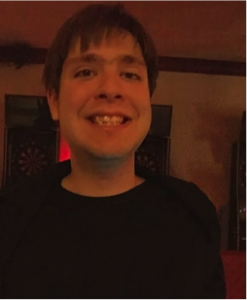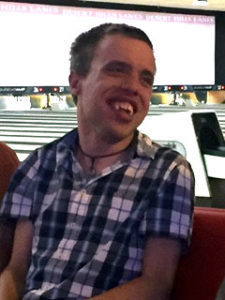Joe Damiano Says #HandsOff – Learn His Tips for Effective Advocacy
This is a new series at The Arc Blog called #HandsOff. Each month, we feature a story from individuals and families across The Arc’s network about how some of today’s key policy issues impact their day to day lives.
 Meet Joe Damiano! Joe is 23 years old and is a very active advocate in his home state of New York. Joe is the outreach director for The Arc’s National Council of Self-Advocates, a board member for a local non-profit, and the former chair of a self-advocacy group called the Collaborative of New York.
Meet Joe Damiano! Joe is 23 years old and is a very active advocate in his home state of New York. Joe is the outreach director for The Arc’s National Council of Self-Advocates, a board member for a local non-profit, and the former chair of a self-advocacy group called the Collaborative of New York.
For the last several years, Joe has attended the Disability Policy Seminar in Washington, DC and participates in the lobby day to meet with his Members of Congress and talk about issues that are important to people with disabilities.
Here is what Joe had to say about his advocacy and his advice for others who want to get involved to tell Congress #HandsOff important programs:
How did you get involved in advocacy? What is your favorite part of being an advocate?
I’ve been doing advocacy my whole life! Once of my favorite examples of my advocacy work is when I was about 16, my dad took me to Albany, to the state capitol in New York to advocate for a bill to stop using the “r” word. It really resonated with me as a person with a disability. I heard that word in school a lot and I didn’t want people to use it anymore.
My favorite part in general is attending learning sessions like at the Disability Policy Seminar so I can learn about the latest issues. My favorite part about meeting with legislators is getting my point across.
Why do you think it’s important for people with disabilities to be strong advocates for programs like Medicaid and Supplemental Security Income (SSI)?
Programs like Medicaid and SSI help people with disabilities. Sometimes these programs are people’s only lifeline. They pretty much can’t live without it. It helps them to be independent. If Congress takes these programs away, many people will be impacted. If you’re not an advocate, those benefits may get taken away.
What advice do you have for self-advocates who want to get started in advocacy?
The first thing and the biggest thing, I would say, is find your local self-advocacy group. Self-advocacy groups can help you with tips on how to present to your legislators and how to get your message across, give you a chance to go to lobby days, and opportunities to meet with your legislators. They really help.
You can learn about upcoming meetings for The Arc’s National Council of Self Advocates here.
What tips do you have for self-advocates meeting with their legislators for the first time?
I made a presentation with tips for self-advocates meeting with their legislators. You can see it here.
One of the biggest things you have to do is have a group discussion, with whoever you are going with, to identify the issues you want to bring up at the meeting. It’s always good to invite other people to be part of the process, as long as they are people who support you. It’s always good to have other people be involved.
Be clear on what you what you want the legislator to achieve and make sure you have stories on that topic. Sometimes you meet with a legislator or aide that don’t understand the issues or that we have disabilities – you just have to be patient and educate them.


 Last year, The Arc published a
Last year, The Arc published a 





